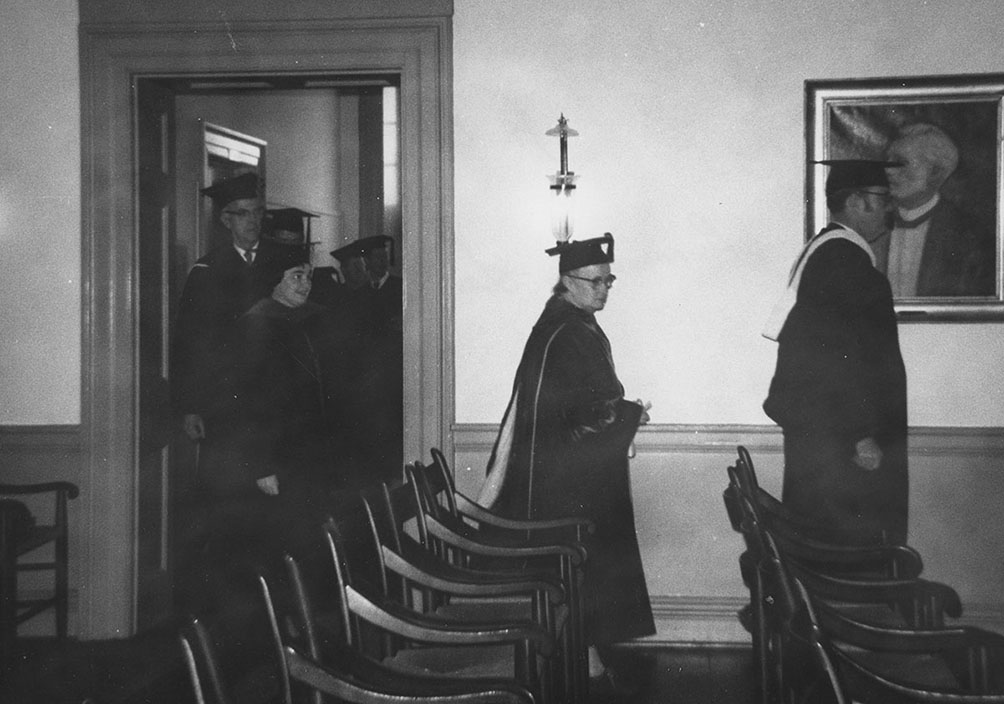
ANNAPOLIS—Richard Weigle, the former president of St. John’s College, opened his Convocation address forty-three years ago on September 10 with the question: “Who are the teachers at St. John’s College?”
“At first blush the answer appears to be clear and unequivocal: obviously the tutors,” he said. “St. John’s tutors are teachers in the best sense of the word. This means that they are lovers of learning for learning’s own sake, that they genuinely care for the students in their classes, and that they find stimulus in the books that they read and in the classes over which they preside.”
“But there is a second answer to the opening question,” Weigle continued, addressing the Class of 1976. “The great teachers are, of course, the authors of the books that we read.”
“You will be learning history from Herodotus, Thucydides, Plutarch, Tacitus, Gibbon, and Tocqueville. You will be learning political theory from Machiavelli, Locke, Rousseau, Adam Smith, and the authors of the Federalist Papers. Your teachers in mathematics will be Euclid, Ptolemy, Apollonius, Copernicus, Descartes, Lobachevski, and Dedekind. For philosophy your faculty will include Plato, Aristotle, Augustine, Descartes, Hobbes, Hume, Kant, Hegel, James, and Peirce. The great theologians under whom you will sit are the writers of certain books of the Bible, St. Thomas Aquinas, Luther, and Calvin. In literature your teachers will be Homer, Sophocles, Virgil, Dante, Chaucer, Shakespeare, Cervantes, Melville, Molière, Goethe, Tolstoi, and Dostoevski. In music you will learn from Bach, Beethoven, Shubert, Mozart, and Stravinsky.”
Weigle had two more answers to give. “A third answer to the opening question arises in part out of the very difficulty of dissecting the thought of the great teachers, of seeking meaning and understandings, and of discovering their contemporary applicability.”
“An important category of teachers at St. John’s College are the other students—those in your seminar, tutorial, or laboratory sections, those in the question period after a lecture, those that sit with you in the coffee shop or live next door in the dormitory. This college believes that one’s fellow students can be and are helpful teachers. It believes that learning here is a cooperative enterprise rather than a competitive one. It respects the fact that students do teach each other and often their tutors as well.”
Weigle offered one more answer to his opening question: “I would assert that each of you is your own teacher. In the last analysis, learning is an individual and personal matter. There is no substitute for quiet and thoughtful reading and study in your room, in a library carrel, under the Liberty Tree, or on the slope of Monte Sol.”
In closing, Weigle quoted advice from the ancient Chinese philosopher Hsün Tzu: “I say that in learning nothing is more profitable than to associate with those who are learned, and of the roads to learning, none is quicker than to love such men.”
Quotations were taken from Convocatum Est by Richard Weigle (Annapolis: The St. John’s College Press, 1981).
—Brady Lee (AGI14)

